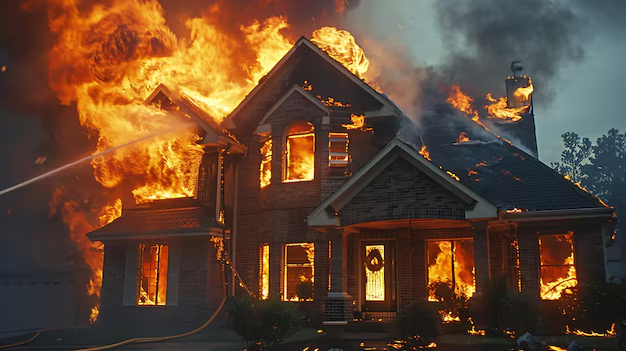Fire insurance is a form of property insurance designed to cover losses caused by fire. When purchasing such coverage, it’s essential that you understand its details, the types of coverage needed, costs involved in purchasing it, as well as how much risk is acceptable in relation to coverage needs and amounts purchased. Furthermore, be aware of any exclusions or limitations within your policy and the claims process in advance.
1) What Are The Principles Of Fire Insurance?
Fire insurance works by shifting the risk of fire damage from you to an insurance company, who will then cover the cost of repairing or replacing any property damaged in a fire. They won’t, however, cover personal belongings damaged in a fire. There are various kinds of policies with differing coverage amounts and limits available; select one that best meets your needs to determine its coverage amount; most policies cover costs associated with repairing or replacing property damaged by fire.
2) Who Should Take Fire Insurance?
Any homeowner, renter, or business owner with valuable property that could be at risk should consider taking out fire insurance. Individuals without enough savings to replace this property in the event it is lost or damaged should invest in fire protection – fire insurance can cover repair or replacement costs as well as temporary living expenses should the damage become repairable. Also businesses wishing to safeguard their assets should take out fire coverage.
3) What Is Covered Under Fire Insurance?
Fire insurance policies cover losses caused by fire. Losses associated with a fire may include costs related to repairing or replacing your building and its contents as well as cleaning and sanitizing it, depending on which policy type is selected by you. Fire insurance may also cover costs associated with non-building structures on your property like fences or pools as well as trees, shrubs and flowers damaged or destroyed by fire; it could even cover stolen property that was taken during a blaze!
4) Which Is Not Covered Under Fire Insurance?

Fire insurance policies do not cover flooding, storm, earthquake or vehicle impact damage to property. Furthermore, it may not cover replacing stolen items from your home and/or repairing those that were damaged before a fire started; many policies do not offer coverage of items considered luxurious or not essential to everyday living.
5) Important Documents For Fire Insurance
Before purchasing fire insurance, it is essential that you collect all the documents and information needed for an application. You will need to know your equity percentage in the property; year it was bought; monthly mortgage payment amounts; outstanding loans on it as well as what current coverage there is in effect; as well as knowing how much coverage exists presently.
6) Fire Insurance Costs
Costs vary based on the type and amount of coverage desired and risk tolerance; costs also depend on factors like location, value of home, level of coverage chosen and risk tolerance; you could save money by increasing deductible and self-insuring amounts.
7) Researching Insurance Companies
ALso Refer:- A Comprehensive Guide To Choosing The Right Travel Insurance Plan
Before purchasing fire insurance policies, it is advisable to conduct research on multiple insurance providers to identify those offering competitive rates, coverage and reputation. You can do your research online, through personal recommendations from friends or family or by consulting consumer-oriented websites and resources.
Conclusion
Fire insurance is a form of property insurance designed to cover losses caused by fires. Before purchasing one, it’s essential that you fully comprehend what coverage you’re purchasing, the types of coverage needed, costs associated with policies, the risk you are willing to take on as well as exclusions/limitations within policies as well as claims processes.


